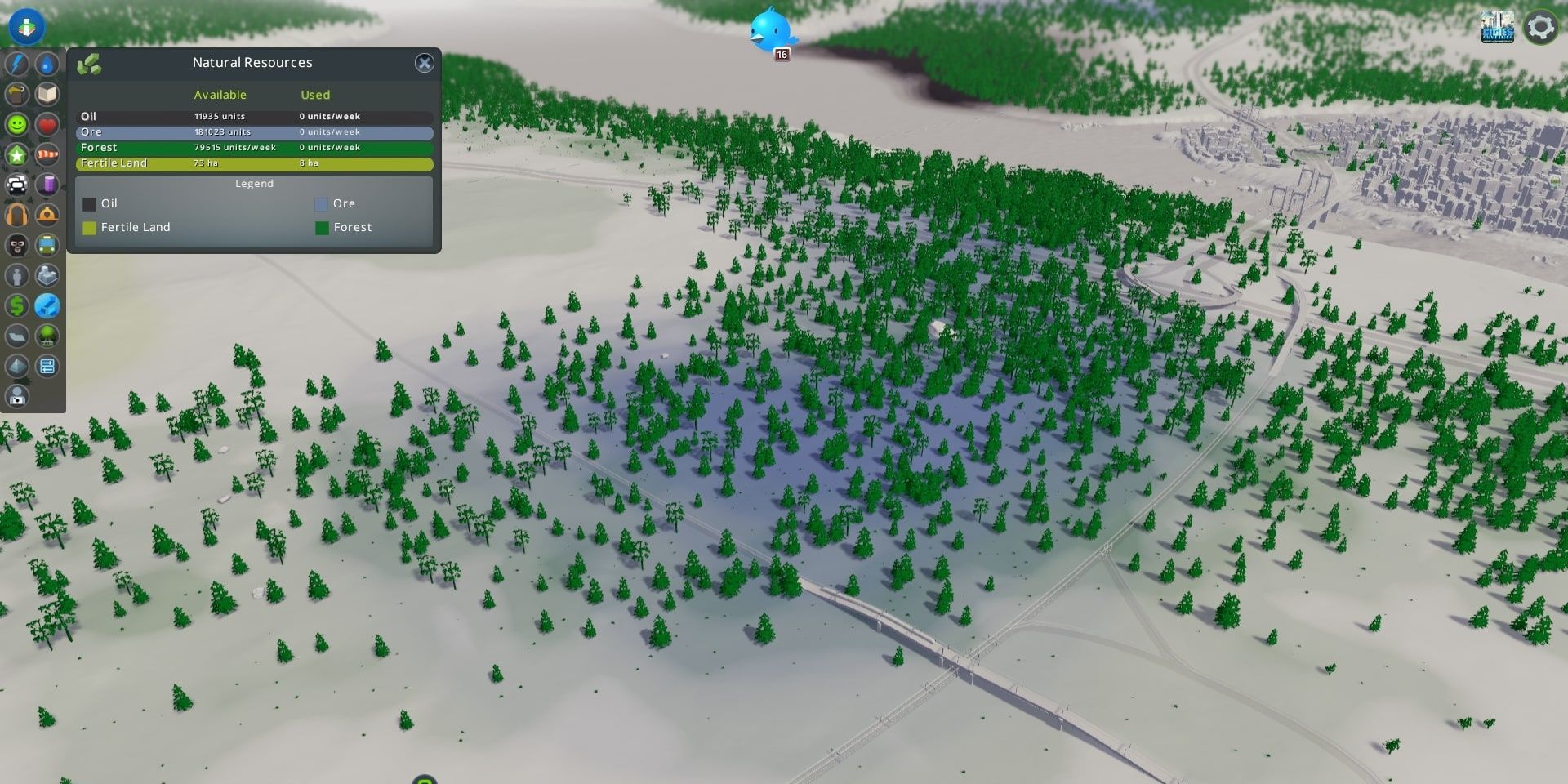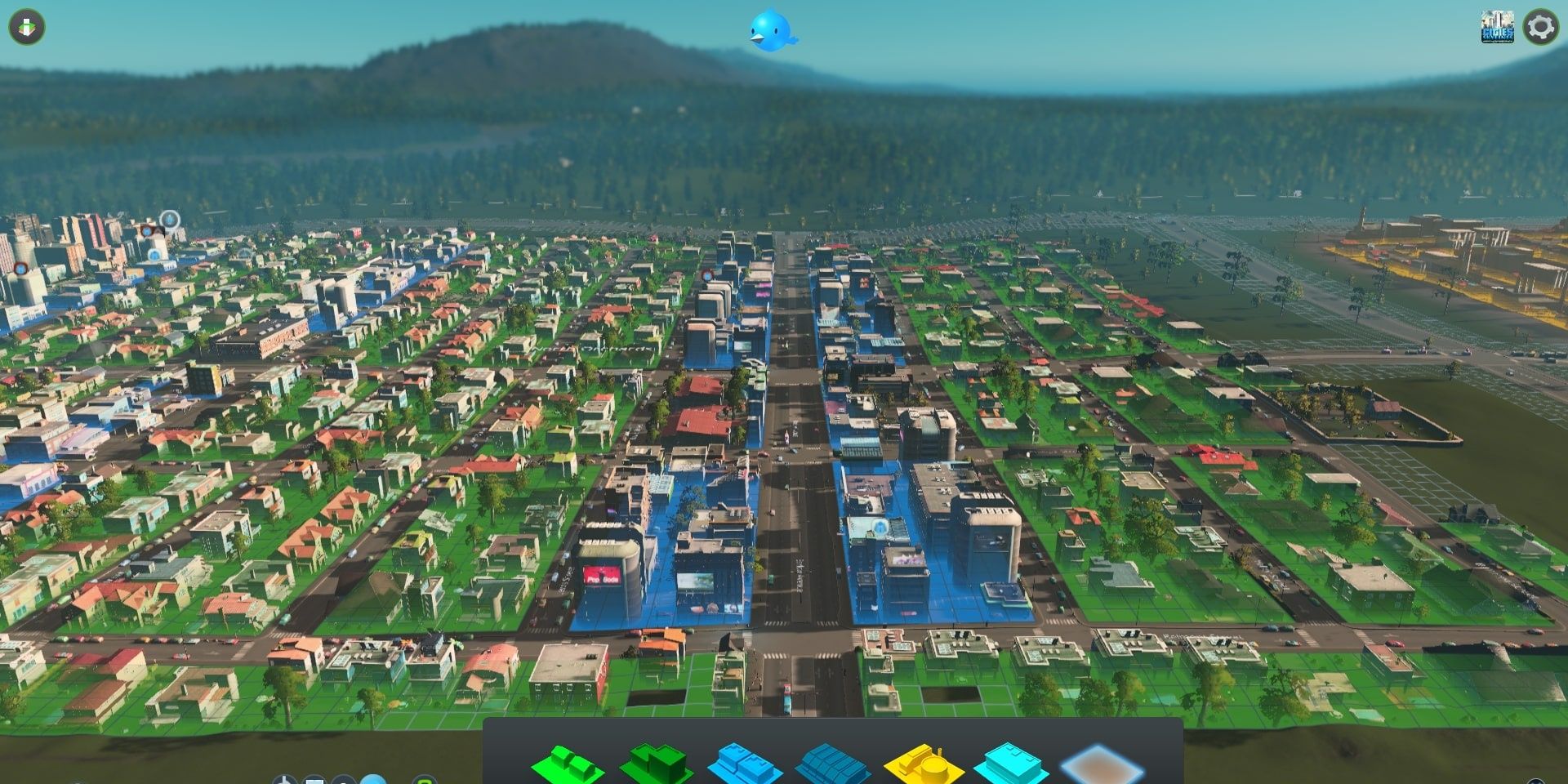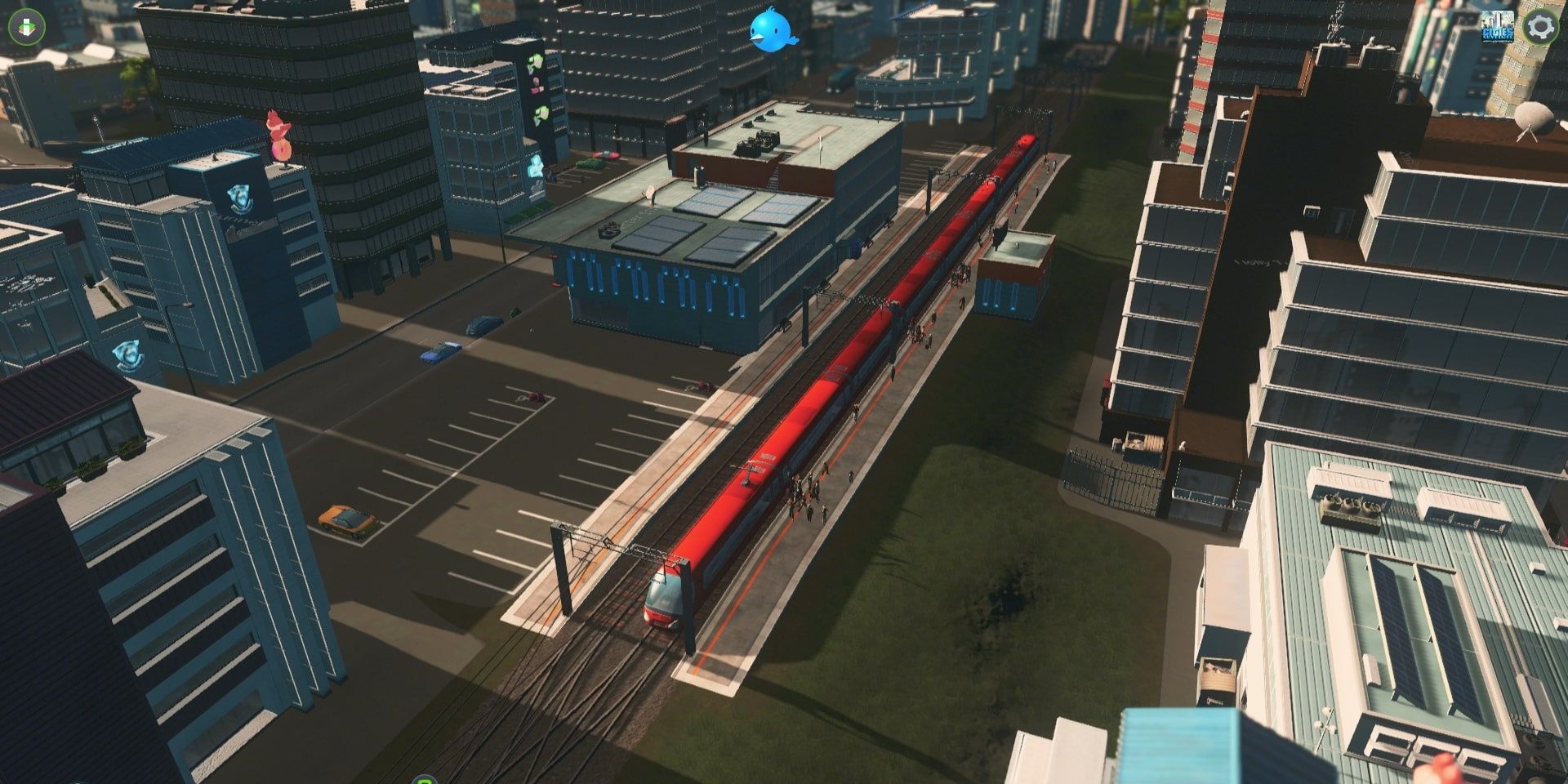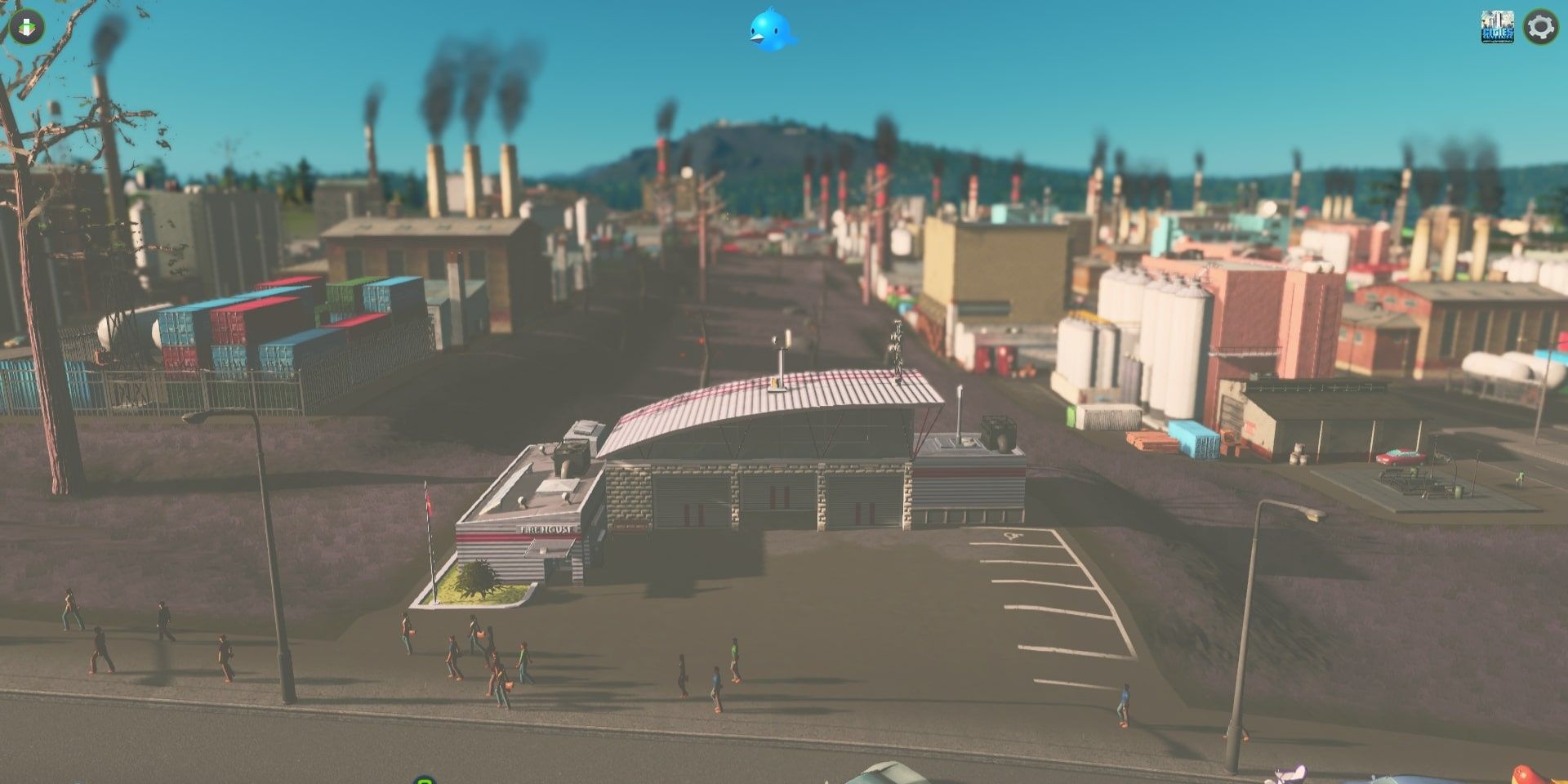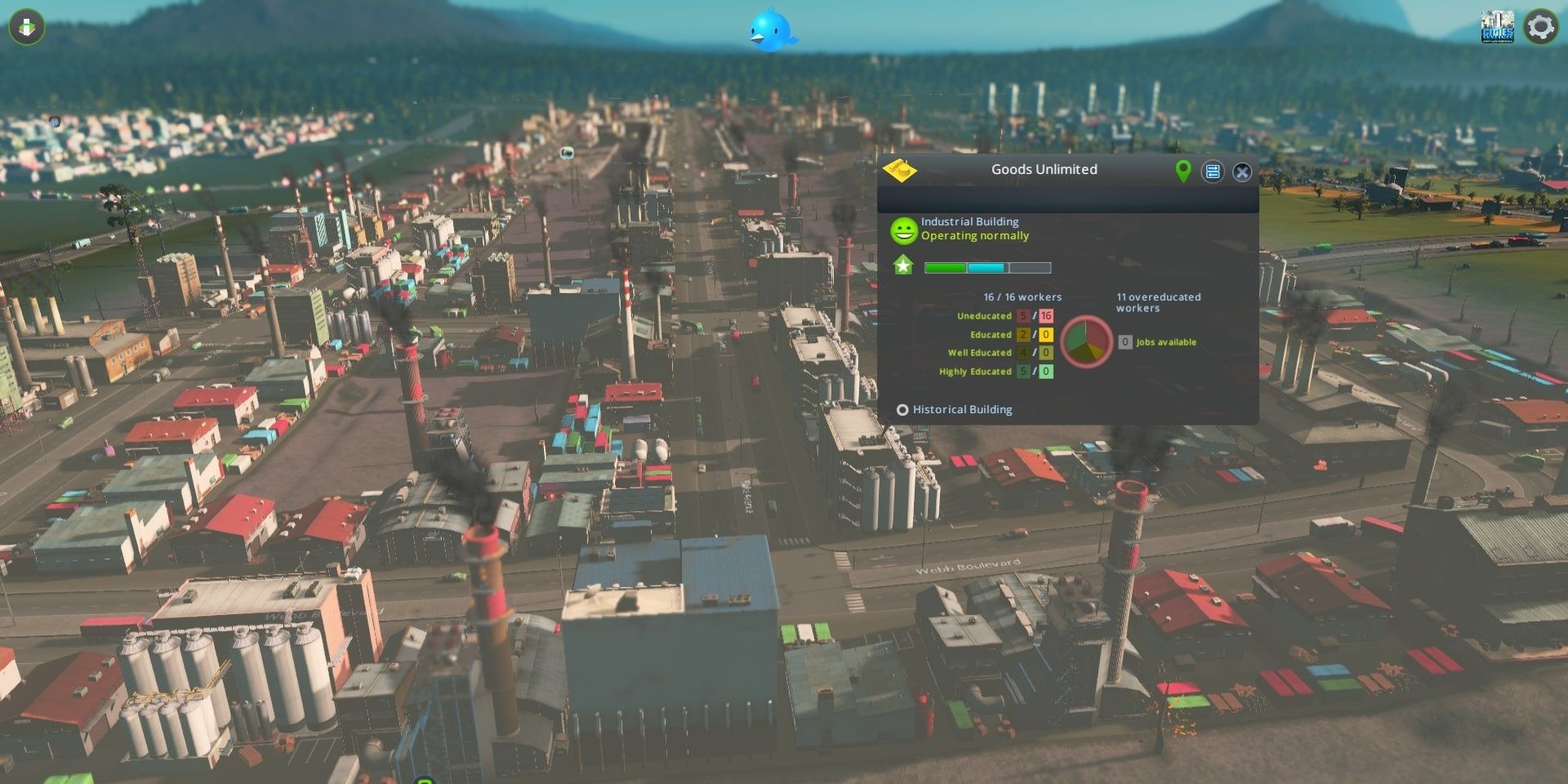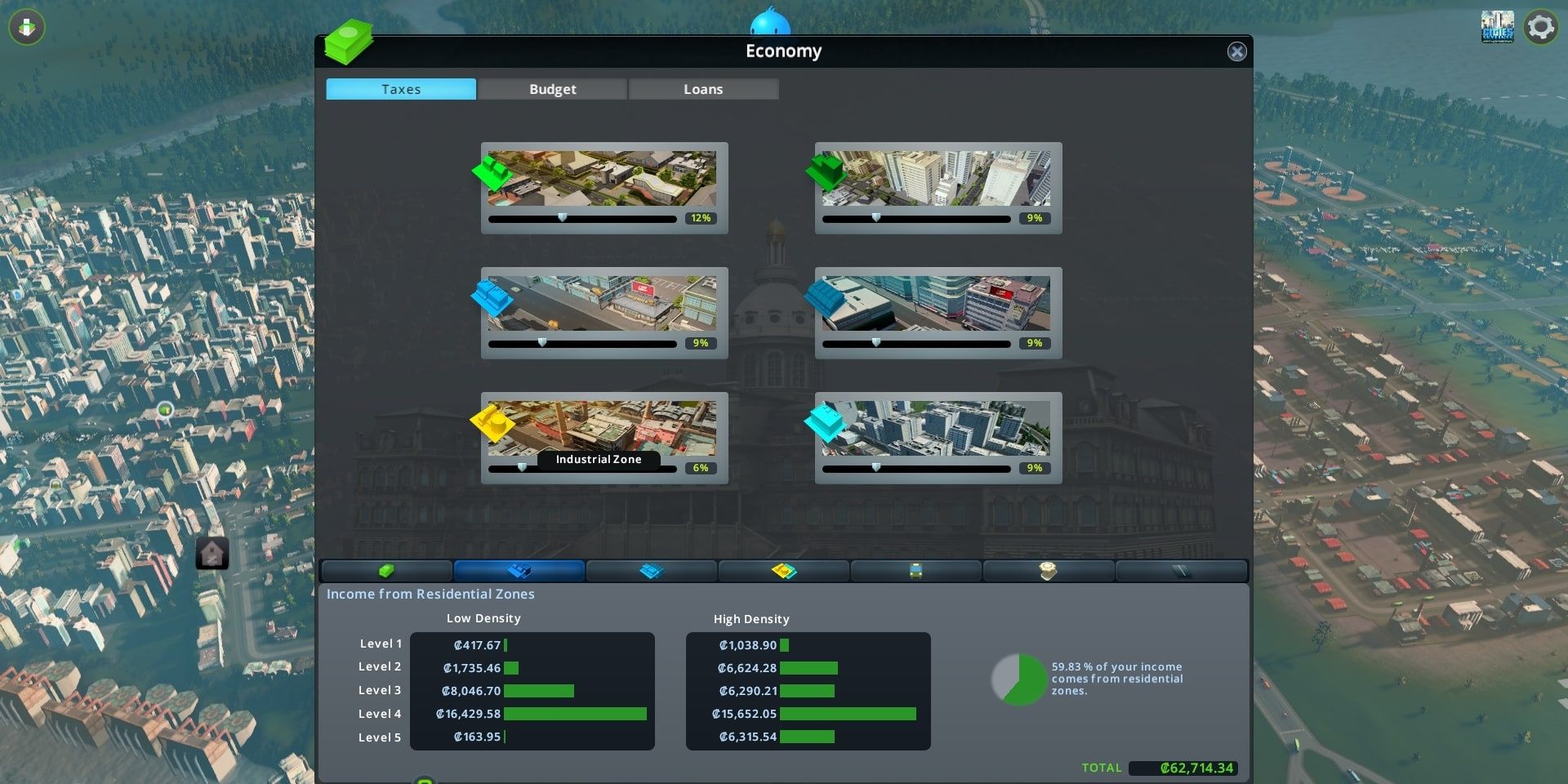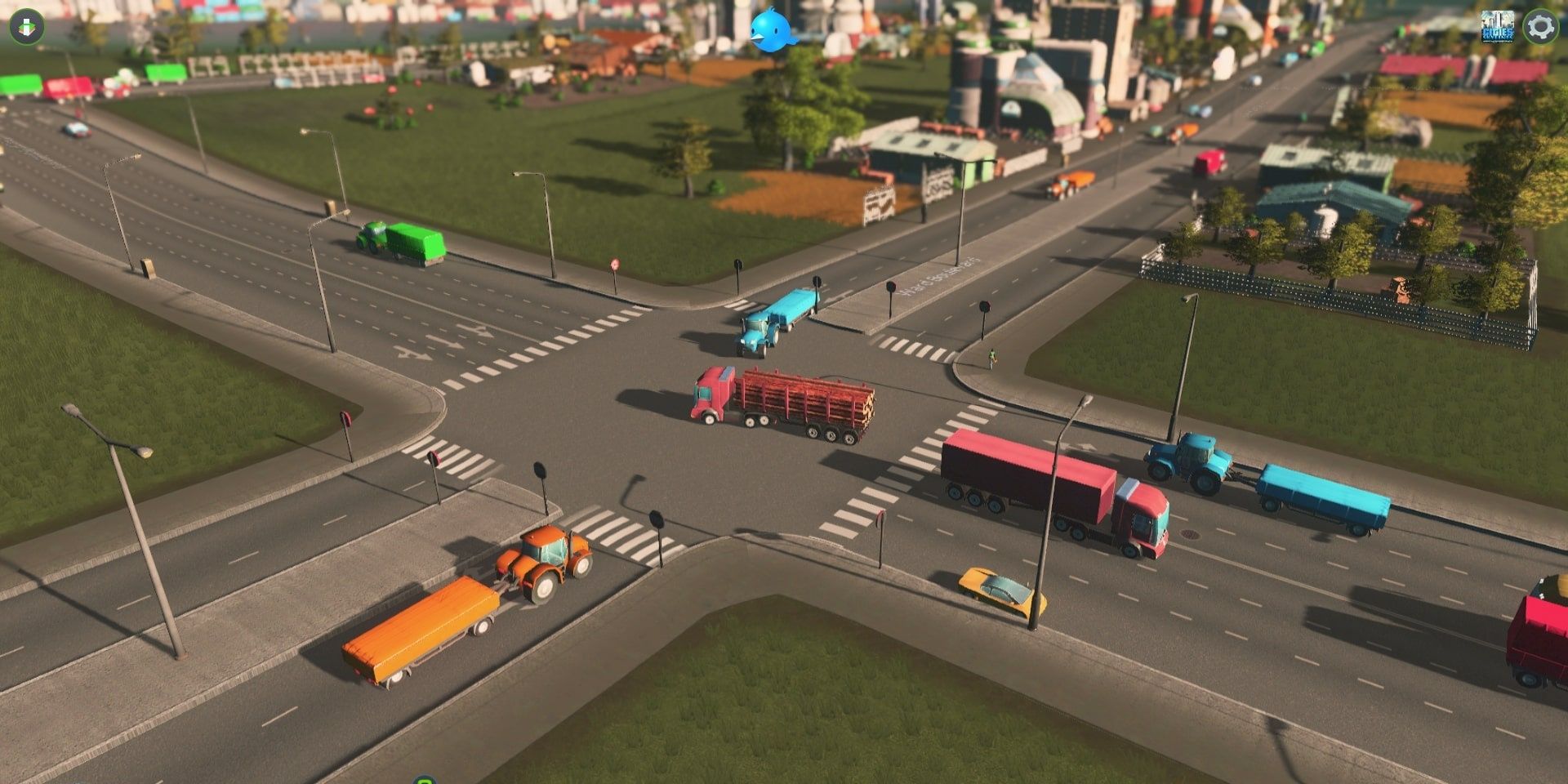Keeping citizens happy is essential to running a functional city in Cities: Skylines. Happiness grants several benefits, making it easier to level up buildings, as well as raising land value, attracting citizens, and increasing tax income. Just like all other zones in the game, industrial zones have their own specific requirements that contribute to their happiness
As citizens don’t live in these areas, happiness instead derives from being as functional and profitable as possible, rather than focusing on visual appeal or cleanliness. While players won’t have to worry about issues such as pollution, there are plenty of other needs that must be met. Here are the best ways to boost the happiness of industrial zones in Cities: Skylines.
7 Provide Enough Raw Materials
Industrial zones create goods from raw materials, which are then sold to citizens. The first and most important way to keep industrial zones happy is to ensure they are receiving a steady supply of raw materials. These can either be imported from outside connections, or harvested from natural resources on the map.
If resources are abundant, players should build specialized industrial zones, like farming or forestry, to make good use of them. If not, raw materials can always be imported from the highway, or even on freight trains or ships. A robust road network is vital to ensure that traffic bringing raw materials into the city doesn’t get stuck in congestion. This can hold up supply lines and bring industrial zones grinding to a halt, so players should upgrade their roads to accommodate the extra traffic.
6 Ensure Demand For Goods
Once industrial zones have manufactured their goods, they need a place to sell them. This is where commercial zones come in, as shops will purchase goods from industrial zones and put them on sale for citizens to buy. Players need to zone enough commercial areas to keep up with the industrial output, as well as zoning enough residential zones to provide enough citizens to buy the goods.
The whole supply and demand system is a fine balancing act, and players will need to adjust and expand their city to accommodate any changes to the equilibrium. It’s important to adapt where needed and fill the gaps in the market, otherwise players might have an unproductive and unhappy industrial zone on their hands.
5 Utilize Different Forms Of Transport
Traffic is an ever-present problem in Cities: Skylines, and standstill congestion can have a harmful effect on industrial zones. Not only does heavy traffic carrying goods or raw materials need direct access to all areas of an industrial zone, it also needs to move across the city to make deliveries to commercial zones.
This can cause large traffic jams, so it’s best to provide multiple methods of transportation. Freight trains are an ideal solution, as they bypass traffic and can carry large quantities of goods across the city relatively quickly. Players should not lean on trains too much, however, as even railroads can experience congestion.
4 Build Basic Services
Services are not as important to industrial zones as other areas, but certain types are still worth investing in. While buildings like parks and schools are unnecessary, players should ensure coverage by emergency services such as police and healthcare, whereas bus lines and metro stations can provide a convenient way for citizens to commute to work.
Firehouses are particularly important, as industrial zones are more prone to catching fire than other zones (especially forestry). Having a fire service that can quickly respond to blazes will help prevent fires from growing out of control and wiping out the entire district.
3 Balance Education In The Workforce
While education is an important aspect of Cities: Skylines, industrial zones are different from office and commercial areas in that they don’t need so many educated workers. Most jobs available in industrial buildings are for uneducated citizens, and leaning too much on education can result in overeducated workers.
At the same time, factories also need highly educated workers to take up a limited number of more complex positions. Players should balance their school system to ensure industrial zones have access to both kinds of citizens, and that the city doesn’t run short of uneducated workers.
2 Decrease Taxes
As with commercial zones, industrial zones are out to make money. Unlike residential zones, which accept higher taxation if they’re happy, industrial zones gain a boost to their happiness if the tax rate is lowered.
Of course, it will also reduce overall income, but the trade-off may be beneficial in certain circumstances. Perhaps an industrial zone has been decimated by a fire or there aren’t enough raw materials coming in – decreasing tax can counteract these shortcomings and encourages businesses to remain in the city and construct new buildings. Ultimately, it’s up to the player to decide whether they think it’s worth it or not.
1 Implement Or Avoid Policies
While no policy in the game directly affects industrial zone happiness, there are a few that indirectly affect it. Industrial Space Planning doubles the output of goods from industrial buildings, which leads to a steep increase in traffic and can prevent the zone from operating properly. On the other side of things, Smoke Detector Distribution lowers the risk of a fire, helping to keep the area safe and functional.
The Heavy Traffic Ban policy can be used to direct traffic onto certain roads and routes, which can help alleviate congestion and ensure goods and raw materials get to their destination on time. Be mindful of these policies when dealing with industrial zone happiness.
Cities: Skylines is available for PS4, PS5, Xbox One, Xbox Series X/S, Windows, Linux, macOS, Nintendo Switch and Google Stadia.





